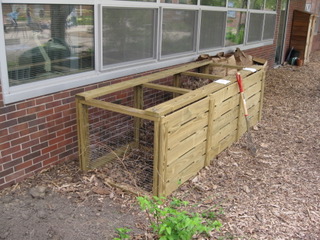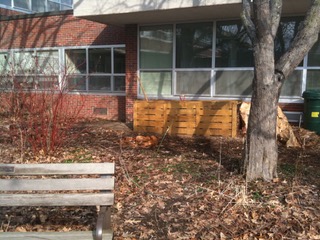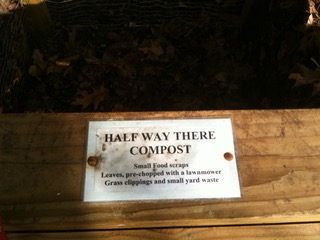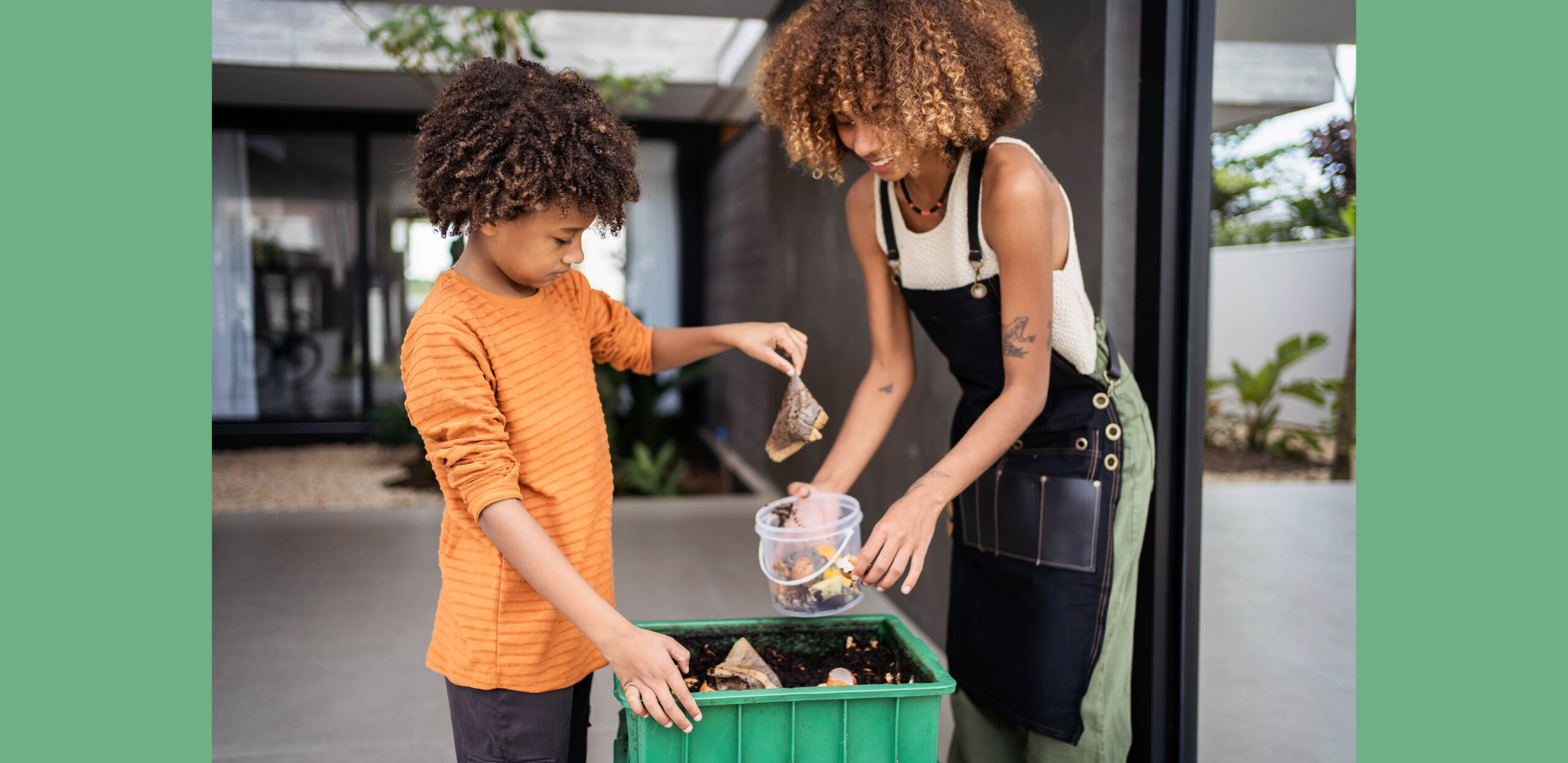A community volunteer and co-founder of Go Green Wilmette, Beth Drucker isn’t just an advocate for environmental sustainability, she practices what she preaches. So during a conversation with Get Dwell’s Darryl Rose, Drucker shared plans for a three-bin compost unit she had installed in her own yard, one she described as the “Cadillac” of composting systems.
Unbeknownst to Drucker, Rose and his team, thinking the plans looked like an interesting carpentry challenge, subsequently built the system in their workshop on spec. Rose said he had no plans for the finished product, although he considered donating it to an interested community organization.

Around the same time, Drucker found herself wishing for a composting bin for the teaching garden she helps maintain at Highcrest Middle School in Wilmette. She felt composting at the school would not only provide valuable nutrients for the teaching garden, it would offer a real-world lesson in environmental sustainability for the school’s students.
It was then, when she mentioned her desire to Rose, she discovered the system she had hoped for was ready and waiting for her at Get Dwell.
“Get Dwell not only had it built and ready at the shop, they donated it to us and delivered it to the school,” Drucker says. “It was a huge job because the system weighs over 100 pounds. It was a very generous donation.”
Although nine feet long when in one piece, the bin design Get Dwell used was modular, which allowed them to disassemble the unit to get it through school doors.

The three-bin system that ultimately arrived at the school is considered an ideal composting solution because it allows material at different stages of decomposition to be separated.
“You have fresh compost, compost that’s been decomposing for a while and compost that’s just about ready to use,” Drucker says. “It’s the only way to ensure that what goes in the garden is fully broken down and best for the soil.”

Highcrests’s students took to composting immediately. Drucker says she never lacks for volunteers when the time comes to turn and aerate the compost.
“They’re surprised to learn it doesn’t smell,” she says. “And recently, we inserted a thermometer into the compost and found the internal temperature was 120 degrees. The kids were amazed, but I told them that’s compost doing what it’s supposed to do.”
The compost system got a big infusion recently when, in honor of Earth Week, the school cafeteria donated all its fruit and vegetable scraps.
“The kids were very generous with their contributions,” Drucker observes. “Maybe overly generous. There was a lot of uneaten apples and carrots.”
Now, it’s busy breaking down for use in the teaching garden, where it will nourish a mix of native woodland and suburban plants, as well as species that will themselves bear fruits and vegetables.
“The system is such a great addition to the garden, and we’re very grateful to Get Dwell,” Drucker says. “It’s a great teaching tool and it will help keep the garden healthy for years to come.”
